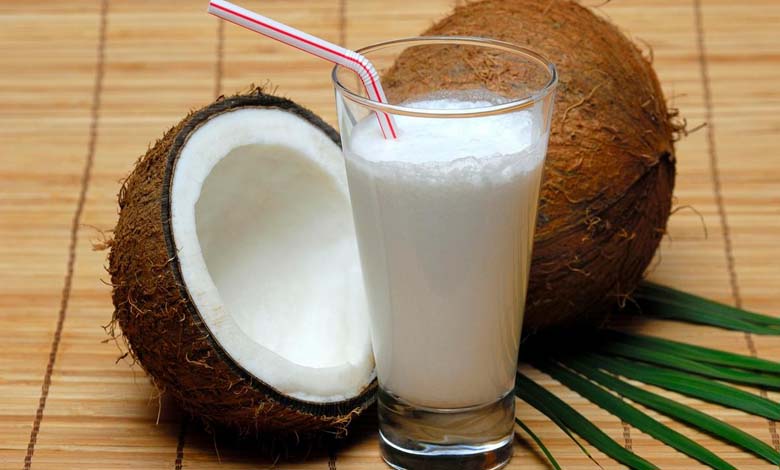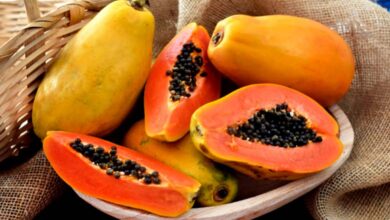Coconut Water or Coconut Milk — Which is Healthier for You?

The coconut tree, a symbol of tropical abundance, offers two popular but very different products: coconut water and coconut milk. Often confused or used interchangeably, these two liquids have distinct compositions, culinary uses, and health impacts. So, which one is better suited to your health goals?
This article explores the nutritional properties, health benefits, culinary applications, and best uses for each type.
- Origin and Composition
Coconut Water
Coconut water is the clear liquid found naturally inside young green coconuts. It is slightly sweet, refreshing, and packed with electrolytes.
Average composition (per 100 ml):
Calories: 19 kcal
Carbohydrates: 3.7 g (mainly glucose and fructose)
Proteins: 0.7 g
Fats: 0.2 g
Electrolytes: potassium (250 mg), sodium, calcium, magnesium
-
Including Bananas: Potassium-Rich Foods That Control Blood Pressure
-
5 Types of Fruits to Detoxify Your Body in Summer
Coconut Milk
Coconut milk is made by grating mature coconut flesh and mixing it with hot water, then straining it to produce a rich, creamy white liquid.
Average composition (per 100 ml):
Calories: 190 kcal
Carbohydrates: 2 g
Proteins: 1.5 g
Fats: 20 g (mainly saturated fats, especially lauric acid)
-
Orange: the amazing story of this citrus fruit
-
5 Summer Fruits That Naturally Lower Uric Acid Levels
- Health Benefits
Coconut Water: The Natural Sports Drink
Rehydration: Its electrolyte content makes it excellent for post-exercise recovery or dehydration.
Low calorie: A healthier alternative to commercial sports drinks.
Kidney support: May help reduce kidney stone formation, according to some studies.
Antioxidant properties: Contains phenolic compounds that reduce oxidative stress.
Coconut Milk: A Nourishing Functional Food
-
“Durian, the King of Fruits” – These are the Benefits of the “Stinky” Fruit
-
5 Common Mistakes to Avoid When Eating Dried Fruits
Heart support? Lauric acid may improve lipid profiles in some individuals.
Satiety: High fat content makes it suitable for ketogenic and low-carb diets.
Anti-inflammatory effects: May help reduce inflammation through its bioactive compounds.
Dairy alternative: Suitable for those with lactose intolerance, although naturally lacking calcium and vitamin D.
- Risks and Precautions
Coconut Water
Hyponatremia: Overconsumption may dilute sodium levels.
Diabetes: Though low in sugar, intake should be monitored by diabetics.
-
7 Fruits to Help You Get Rid of Insomnia… Try Kiwi
-
5 servings of fruits and vegetables every day to be healthy
Coconut Milk
High in calories: Excessive use can contribute to weight gain.
Saturated fats: Controversial in cardiovascular health; moderation is key.
Allergies: Rare but possible coconut allergies exist.
- Culinary Uses
Coconut Water
Consumed as a beverage or added to smoothies
Used in natural electrolyte drinks
Can be used to cook rice or flavor teas
Coconut Milk
Essential in curries, soups, exotic desserts
Used for vegan whipped cream
Common in sauces and baked goods
- Verdict: Which Should You Choose?
-
Red fruits: all of their health benefits!
-
Winter fruits and vegetables: our tips to boost their benefits
For hydration and sports recovery: Coconut water
For rich and hearty cooking: Coconut milk
For low-calorie, low-sugar needs: Coconut water
For keto or vegan diets: Coconut milk
Coconut water and coconut milk serve different roles but can both be part of a healthy diet. Your choice should depend on your lifestyle, health status, and culinary preferences. Rather than choosing one over the other, it’s best to use both wisely and appropriately.












